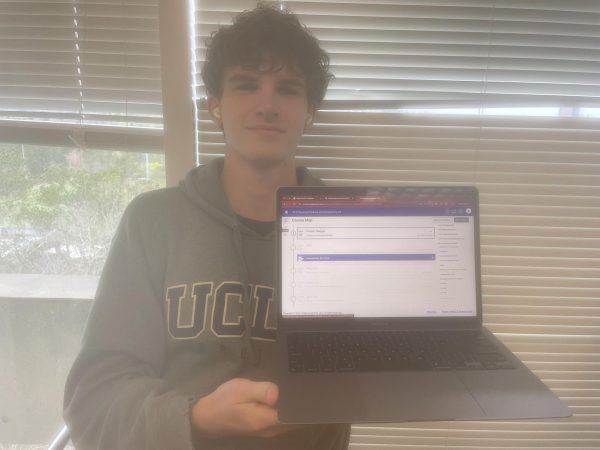YouTube or ScrewTube?

YouTube Trauma: Logan Paul is among many YouTube celebrities who have ignited firestorms of protest for posted insensitive or offensive material.
This past year was quite interesting, to say the least. It was a year for people to stand up for what they believe in and speak out against injustice but, on the other hand, people also made memes about eating Tide Pods. Strange things occurred in 2017, but some of the most interesting incidents were the YouTube controversies surrounding creators such as Logan and Jake Paul, Sam Pepper, Trisha Paytas, Pewdiepie, Marina Joyce, iDubbbz and many more.
Whether or not you support any of these content creators, it is pretty safe to say that each of them had widespread influence and received a great deal of backlash from the public for whichever controversy they were involved in. Maybe this is a result of YouTube’s stricter rules that came about this past year, or maybe 2017 was a year of outrage and ridiculousness. Nevertheless, something was in the air on YouTube that led to many discussions on morality and free speech between creators and subscribers.
The most recent – and most famous – of all the squabbles is probably Logan Paul’s vlog entitled “We found a dead body in the Japanese Suicide Forest.” From the name alone, it’s clear to see that not many good things can come from the video, but the thumbnail also includes an image of a ridiculously dressed Paul looking distressed and a graphic image of someone’s body hanging next to him. The video featured him and his friends standing next to the person, making jokes, laughing and generally taking the situation very lightly. After days of backlash, Paul issued an apology over Twitter, which some have deemed “self-serving.” Many of Paul’s fans and followers responded to his apology, coming to his defense, which raised a dangerous question about content and content creators on YouTube: What kind of people or subject matter are young viewers being influenced by? Thus, there is bound to be a tightened leash on YouTube videos in the coming years.
Another hot topic for the site this year was the Pewdiepie controversy, which surrounded one of the internet’s most well-known and well-paid creators. In February, the Wall Street Journal published an article calling out the YouTuber for making anti-Semitic jokes, which sparked backlash from all corners of the interwebs. Some of Pewdiepie’s loyal fans came to his defense, angry at the misconstrued events and hindrance on free speech, while some people believed Pewdiepie had used his freedom of speech to attack a group of people and make light of the pain of their past. This controversy brought up the issue of free speech that many arguments have surrounded in the last few years. After Disney cut ties with Pewdiepie following the incident, a spokeswoman for the partnering studio told Business Insider, “Although [Pewdiepie] has created a following by being provocative and irreverent, he clearly went too far in this case and the resulting videos are inappropriate.”
Countless other YouTubers were targets of anger last year, causing them to lose ads, subscribers, and revenue, so their solution was to create videos calling out YouTube and their haters. Many creators have promised to quit the site if it doesn’t relax its policies or reopen their income flow, and there are bound to be changes in the future. Will there be a new sheriff in town when it comes to uploading video content, or will YouTube reign in its creators with more relaxed regulations? Only time will tell.






